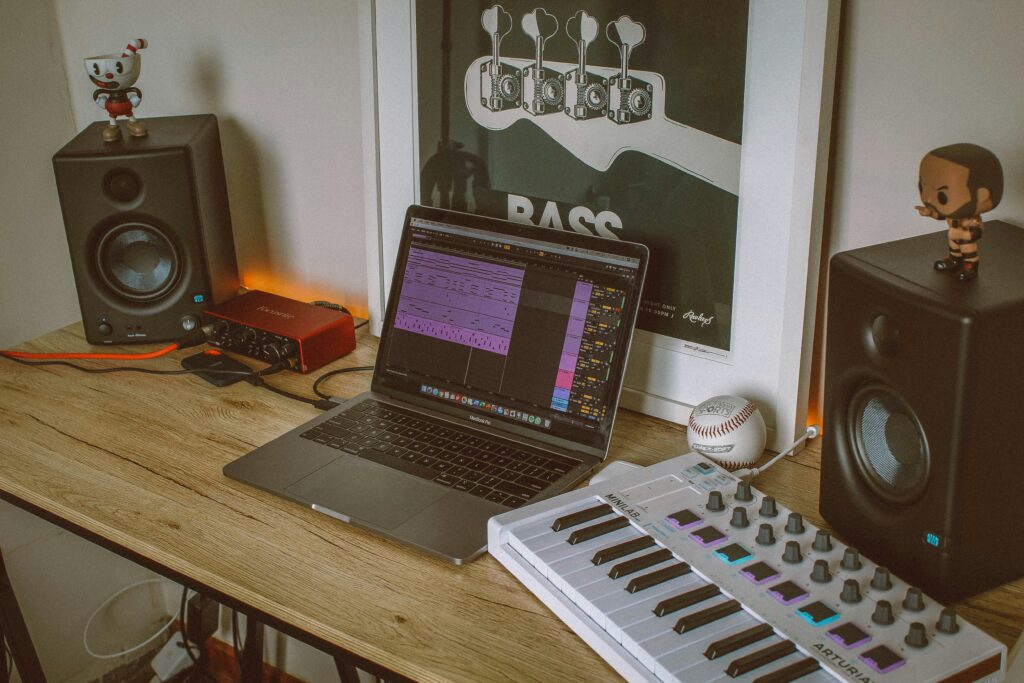7 Powerful Ways to Market Your Music as an Independent Artist and Boost Your Career
How to Market Your Music as an Independent Artist
In today’s digital age, learning how to market your music as an independent artist can feel overwhelming, especially with the plethora of tools, platforms, and techniques available. Understanding how to market your music as an independent artist effectively is the key to gaining visibility and building a fanbase. However, with a strategic approach, the right tools, and a solid plan, you can build a fanbase, gain recognition, and even earn a living from your music. This guide will show you exactly how to market your music as an independent artist and build a successful career.
Understanding the Independent Music Landscape
As an independent artist, you’re your own boss. This means that while you have complete creative control over your music, you also shoulder the responsibility of handling your marketing, finances, and overall strategy. The good news is that there has never been a better time to be an independent artist. With the rise of digital platforms, artists can bypass traditional record labels and reach a global audience directly.
The key to standing out in the competitive independent music scene is through consistent, smart marketing. You can create high-quality music, but if people don’t know about it, you’ll struggle to gain traction.
Building Your Brand as an Independent Artist
Your brand is more than just your music—it’s the story you tell, your visual identity, and how you communicate with your audience. As an independent artist, your brand is what will set you apart in a sea of other musicians.
Start by defining your artist persona. Ask yourself:
- What do I want my music to represent?
- What emotions do I want my listeners to feel?
- What makes me unique as an artist?
These questions will help shape your image, sound, and messaging. Consistency is key to how you market your music as an independent artist, whether it’s on social media, your website, or in the music itself. Your branding should reflect the genre and vibe of your music, from the visuals you use in cover art to the tone of your social media posts.
Essential Online Platforms to Market Your Music as an Independent Artist
To market your music effectively, you need to have a presence on key online platforms. Here’s a breakdown of some of the most important platforms to use:
- Spotify: As the biggest music streaming platform, Spotify is an essential tool for independent musicians. Create and optimize your Spotify Artist profile, distribute your music through platforms like DistroKid or TuneCore, and use Spotify for Artists to track analytics and promote new releases.
- Apple Music: Apple Music is another major player in music streaming. Similar to Spotify, you can distribute your music via services like DistroKid, ensuring your tracks are available to a global audience.
- SoundCloud: Ideal for indie artists, SoundCloud offers a unique way to build an audience. It has a dedicated user base of music lovers who enjoy discovering new artists. Use SoundCloud to share your demos, remixes, and full tracks.
- YouTube: YouTube is not just for videos—it’s one of the top platforms for music discovery. Upload music videos, behind-the-scenes content, vlogs, and live performances to keep your fans engaged.
- Bandcamp: Bandcamp allows you to sell your music directly to fans, keeping more revenue. It’s an excellent way to build a direct relationship with your listeners, offering exclusive content like special editions or merchandise.
How to Market Your Music as an Independent Artist on Social Media
If you’re looking for effective ways to market your music as an independent artist, social media is a powerful tool. It’s a direct way to engage with your audience, promote new releases, and give fans a glimpse into your life. But just posting sporadically won’t cut it. You need a strategic approach.
Here’s a guide to creating an effective social media strategy:
- Identify the right platforms: Focus on the platforms where your audience is most active. Instagram, TikTok, Twitter, and Facebook are the most popular platforms for artists. Instagram is great for visuals, while TikTok is ideal for viral content and short music snippets.
- Consistency is key: Posting regularly is important for staying visible. Develop a content calendar to plan your posts in advance, ensuring you have a good mix of promotional and personal content.
- Engage with your followers: Respond to comments, participate in challenges, and ask your followers for feedback. Social media is not just for broadcasting—it’s for building relationships.
- Use hashtags effectively: Hashtags help new listeners discover your music. Research trending hashtags in your genre and incorporate them into your posts.

How to Use Streaming Platforms to Market Your Music as an Independent Artist
Streaming platforms are essential to how you market your music as an independent artist, helping you gain new listeners and increase visibility.
- Claim your artist profile: Make sure you claim and fully optimize your artist profile on each platform. This includes adding your bio, photos, and links to your website and social media accounts.
- Submit your music to playlists: Playlists can be a major traffic source. Submit your music to editorial playlists on platforms like Spotify. You can also pitch your songs to independent playlist curators.
- Leverage features like “Artist’s Pick” or “Release Radar”: On platforms like Spotify, you can curate your profile with featured tracks, which gives you more exposure.
Engaging Your Fans Through Content Creation
Creating engaging content is a great way to connect with your audience and keep them invested in your journey. Here are some types of content to consider:
- Behind-the-scenes: Show your fans how you create your music, from writing lyrics to recording and producing. This gives them a sense of involvement in your process.
- Music videos: A well-produced music video can give your song more visibility and can be shared across various platforms, including YouTube and Instagram.
- Live performances: Host live streams on platforms like Instagram Live, Twitch, or YouTube. These sessions allow you to perform in real-time and engage with your fans.
- Fan-centric content: Show appreciation for your fans by sharing user-generated content, such as fan covers, art, or videos.
Collaborating with Other Artists and Influencers to Promote Your Music
Collaborations can be a powerful way to expand your audience. By working with other musicians, you gain access to their fanbase, which can help you grow your own.
- Collaborate with fellow musicians: Look for artists who share your genre or style and collaborate on a song. This can lead to cross-promotion and exposure to their listeners.
- Work with influencers: Influencers, especially on TikTok and Instagram, can introduce your music to a broader audience. Reach out to influencers who align with your brand and ask if they’d be willing to feature your music in their content.
Email Marketing for Independent Musicians
Email marketing is one of the most effective ways to directly communicate with your fans. With an email list, you own the communication channel, unlike social media platforms that change algorithms.
- Build your email list: Offer fans an incentive to sign up for your mailing list, such as an exclusive song or free download. You can collect emails through your website or during live shows.
- Create regular newsletters: Keep your fans updated on new music, merchandise, upcoming shows, and special offers. Personalize your newsletters to maintain a genuine connection.
- Segment your list: If you have a large fanbase, consider segmenting your email list based on location or previous interactions. This way, you can tailor your messaging more effectively.
Maximizing Your Website to Market Your Music as an Independent Artist
Your website is the hub of your online presence. It should provide all the necessary information for fans to learn about you and your music.
- Make it easy to navigate: Ensure your website is user-friendly, with easy access to your music, tour dates, and contact information.
- Sell music and merchandise: Set up a store to sell your music directly to fans, as well as any merchandise such as T-shirts or posters.
- Include an email sign-up form: Offer a sign-up form for your mailing list and ensure fans can easily find it.
Running Effective Ads for Music Promotion
Paid advertising is an excellent way to boost your visibility as an independent artist. Platforms like Facebook, Instagram, and YouTube offer targeted ads that allow you to reach specific demographics.
- Target your ads effectively: Use the targeting options on these platforms to focus on people who are likely to enjoy your music. For example, target fans of similar artists or genres.
- Use video ads: Video content tends to perform well on social media. Create short clips showcasing your music or behind-the-scenes content to use as ads.
- Track your results: Monitor the performance of your ads and make adjustments based on what’s working.
Utilizing PR and Press Coverage to Promote Your Music
Getting press coverage can help establish credibility and gain exposure. Here’s how to approach PR:
- Write press releases: Write compelling press releases for each major release, including album launches, music videos, and live performances. Distribute these to music blogs, magazines, and local press.
- Pitch to music blogs: Reach out to blogs that specialize in your genre. Offer them exclusive content or early access to your music in exchange for coverage.
- Hire a publicist: If your budget allows, consider hiring a publicist to help you gain media coverage.
Conclusion: Stay Consistent and Adapt to Changes
Marketing your music as an independent artist requires a mix of creativity, strategy, and persistence. There’s no one-size-fits-all approach, and the landscape is always evolving. Stay consistent with your efforts, adapt to changes, and always look for new opportunities to grow your fanbase.
To truly succeed as an independent artist, you need to know how to market your music as an independent artist and take consistent, strategic actions.
Remember, the key is to stay dedicated and be patient—success takes time, but with the right approach, it’s entirely within your reach.

